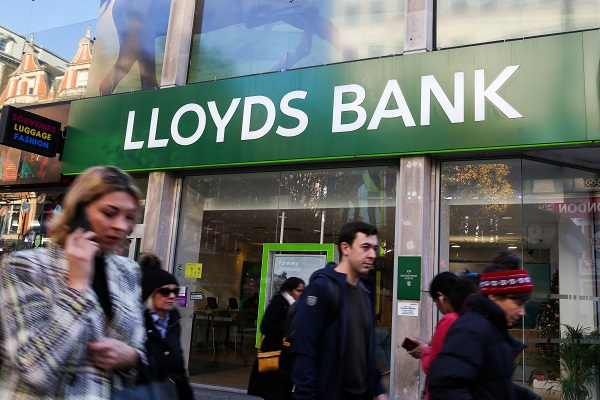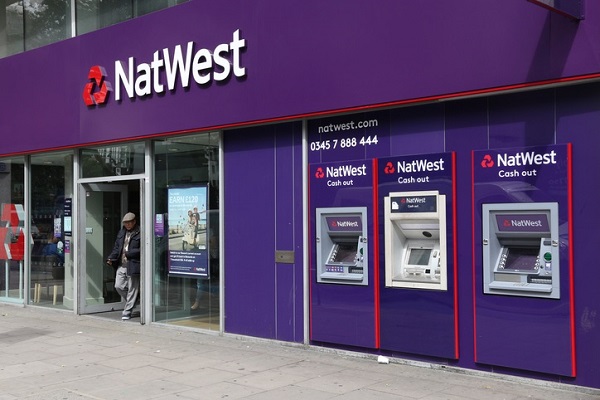Has the tide turned for the big UK bank stocks?
Investors are starting to see the big UK banks in a more positive light.
14th July 2021 13:42
by Graeme Evans from interactive investor
Investors are starting to see the big UK banks in a more positive light as dividends and share buybacks come into play again.

Optimism around the recovery of Lloyds Banking Group (LSE:LLOY) and other lenders continues to build after ratings agency Moody's Corporation (NYSE:MCO) shed some of its caution over the outlook at NatWest Group (LSE:NWG).
The Moody's review of various NatWest credit ratings came as UK banks were put back in charge of dividends and share buybacks for the first since the start of the pandemic.
The freedom announced yesterday by the Prudential Regulation Authority was initially welcomed in the City, only for shares to close sharply lower in a further sign of the economic uncertainty being created by the renewed spread of the Delta variant.
- Invest with ii: Top UK Shares | Share Prices Today | Open a Trading Account
Investors have also appeared reluctant to commit new money ahead of the second quarter results season, which starts at the end of this month and will be watched to see if lenders continue to write back some of their previously announced loan loss reserves.
The Moody's upgrade on NatWest at least triggered some improvement for shares today as the former Royal Bank of Scotland company improved 2% or 3.5p to 204.9p at the top of a weakened FTSE 100 index risers board.
Lloyds was 0.6p higher at 47.35p, but has now been stuck in the 45p-50p range for more than three months. Despite the removal of Brexit uncertainty and the less severe impact of Covid-19, domestic-focused lenders continue to trade at a big valuation gap to European peers on about 8.1 times forecast 2022 earnings.
They hold as much excess capital as their counterparts on the continent and appear well placed to capitalise as the UK economic recovery continues. And even if there is a deterioration in conditions, the Bank of England's latest Financial Stability Report found banks can cope with significantly heavier losses than they experienced at the height of the pandemic last year.
UBS banking analyst Jason Napier noted last week that a growing pile of excess capital equivalent to between 6% and 27% of market capitalisations should “generate broader appeal” for the shares of UK lenders. His price target for Lloyds is 54p, alongside 210p for Barclays and 214p at NatWest.

However, Napier said investors may have to wait until full-year results next spring for the first substantial pay-outs. In the case of Lloyds, he said there was £3.6 billion in excess capital amounting to 11% of market cap that new boss Charlie Nunn will have to decide whether to invest or distribute.
The NatWest figure at 27% won't necessarily mean a big return of capital as the government still has 54% ownership and will want reassurance on the recovery of the loan portfolio first.
But there was further reassurance last night that the lender is moving in the right direction after Moody's moved its rating on NatWest's main unsecured debt from Baa2 to Baa1 at the lower reaches of the investment grade scale.
It described the outlook as positive, based on the potential improvement in profitability and asset quality following NatWest's recent exit from the Irish market, the completion of a restructuring in capital markets and general improvement in the operating environment.
NatWest said it welcomed the Moody's review, which also covered a number of subsidiaries.
These articles are provided for information purposes only. Occasionally, an opinion about whether to buy or sell a specific investment may be provided by third parties. The content is not intended to be a personal recommendation to buy or sell any financial instrument or product, or to adopt any investment strategy as it is not provided based on an assessment of your investing knowledge and experience, your financial situation or your investment objectives. The value of your investments, and the income derived from them, may go down as well as up. You may not get back all the money that you invest. The investments referred to in this article may not be suitable for all investors, and if in doubt, an investor should seek advice from a qualified investment adviser.
Full performance can be found on the company or index summary page on the interactive investor website. Simply click on the company's or index name highlighted in the article.